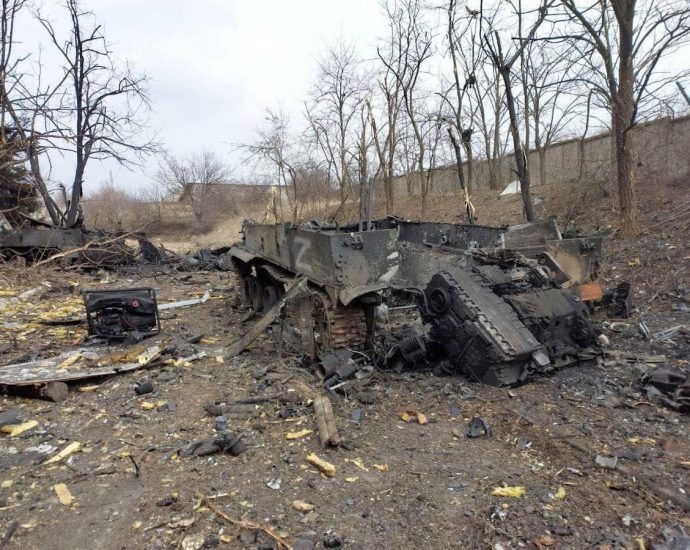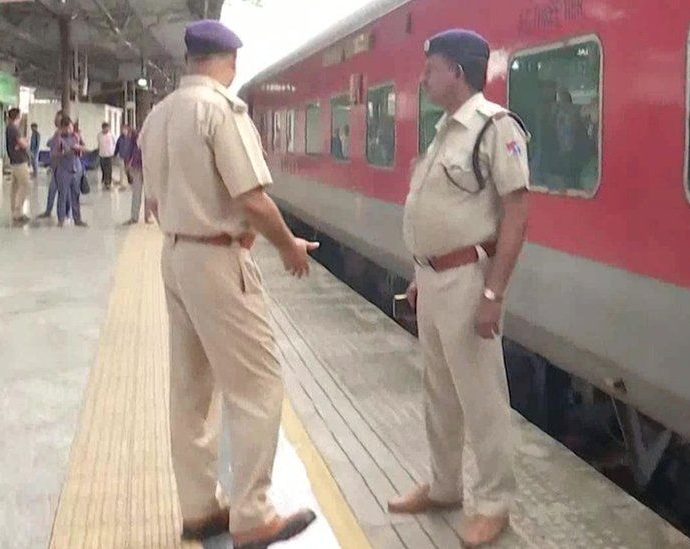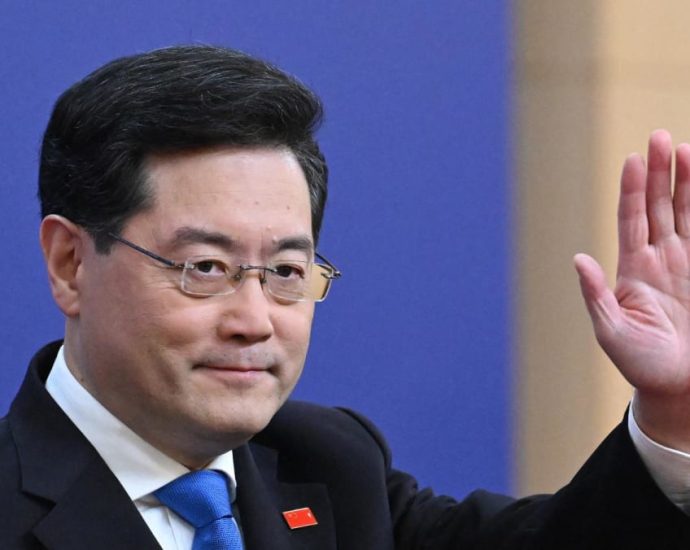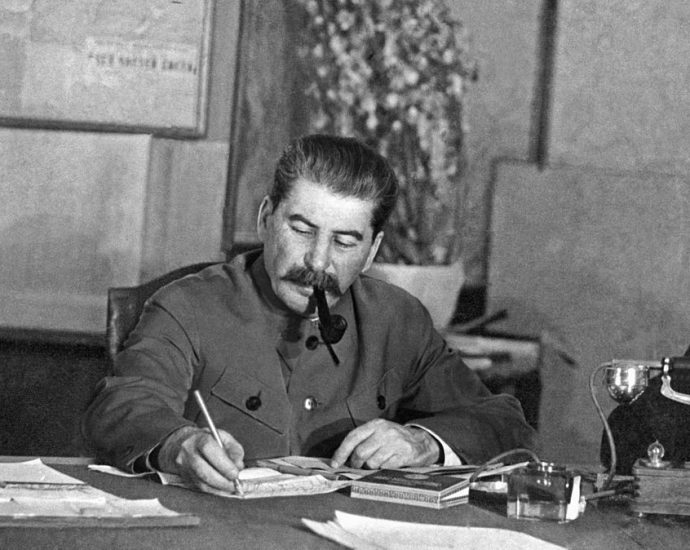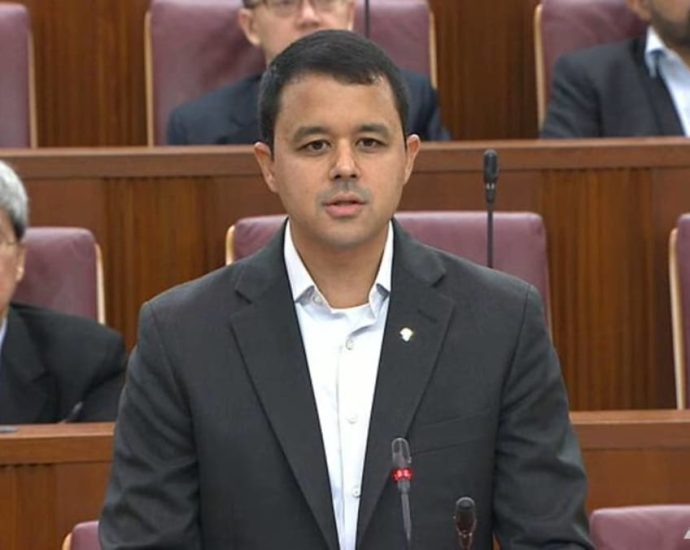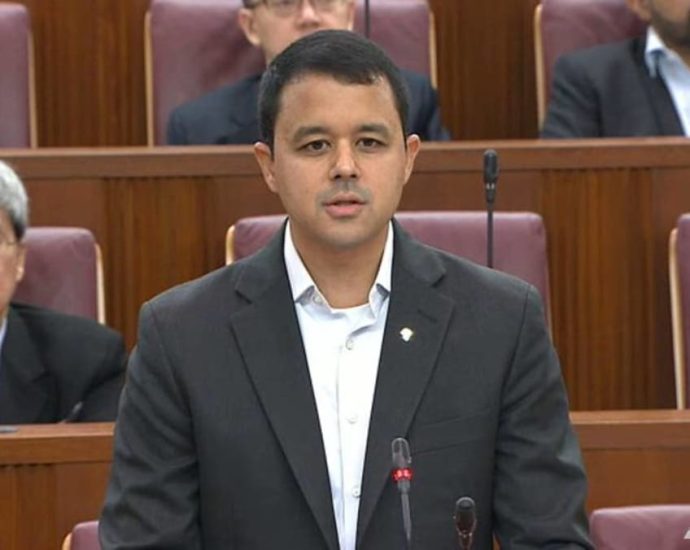Krabi airport expansion 87% complete
PUBLISHED : 31 Jul 2023 at 14:23
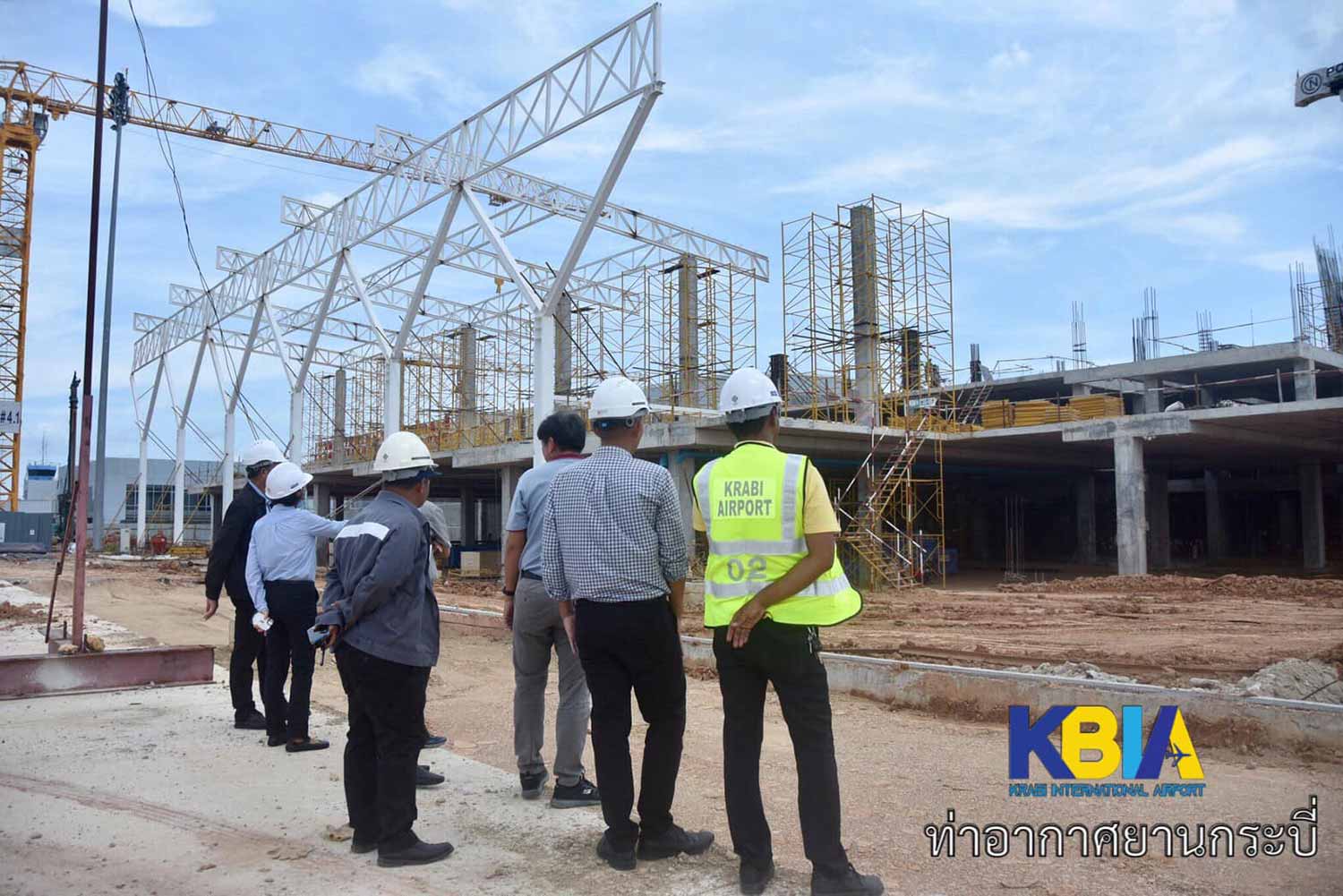
The expansion of Krabi airport to handle up to 8 million passengers per year is expected to be completed in late 2024 and the new facilities to open for service in 2025, the Department of Airports said.
The project includes construction of a third passenger terminal and improvements to the two existing terminals and car park building, at a projected cost of 2.923 billion baht. The work is now 87.52% completed, the department’s statement issued on Monday said.
Construction of a taxiway and upgrading of the airport electrical system is 58.20% completed.
The entire project is expected to be completed in late 2024 and open for service in 2025.
After the completion, the three passenger terminals will be connected and have a total space of 68,000 square metres and able to accommodate more passengers – up from the current 1,500 per hour, or 4 million per year, to 3,000 per hour or 8 million per year, the statement said.
The car park building can take up to 2,000 cars.
From October 2022-June 2023, Krabi airport handled 1.69 million passengers – 1.37 million domestic and 318,550 international travellers.
By the end of September 2023, the number of passengers passing through the airport is expected to be 1.79 million – 1.43 million domestic and 359,561 international travellers, the department said.
The Krabi airport development project is part of a national strategy to expand infrastructure and enhance the country’s economic growth and competitiveness.
War and peace with Ukrainian characteristics

Few in Washington seem overly worried about the apparent stalemate in Ukraine, where Kiev’s forces can’t break through Russia’s fortified defenses. Meanwhile, America is entirely concentrated on the latest from China – complex malware reportedly able to cripple US cyber systems.
According to The New York Times, which broke the story: “The discovery of the malware has touched off a series of Situation Room meetings in the White House in recent months, as senior officials from the National Security Council, the Pentagon, the Homeland Security Department, and the nation’s spy agencies attempt to understand the scope of the problem and plot a response.
“The US government and Microsoft have attributed the recent malware attack to Chinese state-sponsored actors, but the government has not disclosed why it reached that conclusion. There is debate among different arms of the US government about the intent of the intrusions, but not their source.”
These developments may not be extraordinary. Chinese cyber capabilities have been observed for years. However, an alarm of this level could alter many priorities, and an intentional threat to US territory could spin the situation in a new direction, casting a long shadow on the war in Ukraine. It may make sense of something quite odd there.
Fights on the River Hong
In the Battle of the River Hong in 638 BC, Duke Xiang of Song was ready to fight the Chu troops crossing the river. The Song General Ziyu wanted to attack when the Chu were in disarray at the crossing, but Duke Xiang refused, thinking it was unfair. Song waited for the Chu forces to array and attack. Song lost the battle, and the duke lost his life.
The combat went on to be remembered as a stupid military mistake by Song that changed the course of history.
In the past few weeks, Central Intelligence Agency director William Burns has reportedly told his Russian counterparts that the US had nothing to do with Yevgeny Prigozhin’s June 23 mutiny.
Politico says, “The US reached out to Russia at a critical moment to ensure there was no confusion about its lack of involvement.”
Moreover, The New York Times reported that the US advised Ukraine not to take advantage of the confusion caused by Prigozhin to attack Russia.
Why so? Shouldn’t Ukraine take advantage of the confusion and push harder before Russia gets its house in order and its troops arrayed for battle?
Is Burns like the Duke of Song, or does he have other, more subtle plans?
The National Broadcasting Company (NBC) and The Guardian averred there had been secret talks between the US and Russia right at the time of the mutiny, and Washington didn’t want to compromise that progress.
Historian and strategist Edward Luttwak is even more explicit:
“Unmistakable signals have been issued from the Kremlin that [President Vladimir] Putin is finally ready to consider a compromise. The final party longing for an end to the debacle is the US.
“Last week, CIA head William J Burns hurriedly called his Kremlin counterpart, Sergey Yevgenyevich Naryshkin, to reassure him that the US had nothing to do with Prigozhin’s march to Moscow. That phone call is as good evidence as any that, contrary to foolish leftist fantasies, the Biden administration (fully backed by most Republicans) does not want Russia destabilized by this war.
“For it knows only too well that Russian power alone keeps the Chinese from absorbing the vast spaces of Mongolia, Kazakhstan, the Kyrgyz Republic, Uzbekistan and Tajikistan – and that Russian weapons still flow to the only countries that fight the Chinese in recurring incidents: India on land and Vietnam at sea.”
There is, in fact, a consensus about the ongoing talks, so much so that the conservative Gatestone Institute criticizes it:
“In public, US President Joe Biden is keen to give the impression that he is fully committed to backing Ukraine’s battle for survival. But it is a different story behind the scenes, where Biden and his senior officials are more interested in ending the war in good time for next year’s US presidential election contest.
“Consequently, rather than upsetting the Kremlin by openly backing Ukraine’s NATO membership bid, the Biden administration’s real objective is to explore possible options for ending hostilities this year.
“Biden’s obsession with ending the conflict helps to explain the recent initiative undertaken by a delegation of high-ranking US foreign-policy experts and former national-security officials to hold secret talks with Russian Foreign Minister Sergey Lavrov in New York in April. The aim of the meeting was to lay the groundwork for negotiations to end the war in Ukraine.
“Among the subjects discussed were some of the thorniest issues of the conflict, such as the fate of Russian-occupied territory such as Crimea that Ukrainian forces have not been able to liberate.”
Tactics and strategy
There are tactical reasons for that; the Ukrainian army is being depleted, and it will need more significant help: more airplanes, new equipment, and possibly also fresh forces to move to the front.
Besides that, there is the American concern that an utter Russian defeat could trigger the collapse of Russia. Its fragmentation could entail dangerous consequences. First, Russian nuclear warheads and missiles could be lost in the total disarray. Some warheads could end up in the hands of crazy terrorists in Africa or other parts of the world.
Then there is a strategic factor: America would like to flip Russia against China. Russia could be agreeable to the proposition as it may fear losing its clout in the Far East and Central Asia to China.
This creates the possibility of China being surrounded by hostile forces in the next few months, which could have massive domestic repercussions in Beijing.
The war in Ukraine, China’s initial support, and Russia’s strategic defeat in Ukraine generate a dire situation for Beijing.
China has been supporting Russia rhetorically and also with some equipment. China’s aid was useful but not a game-changer.
Still, a more significant commitment would have alienated entirely the Western world that buys all of China’s trade surplus, and therefore it could have cost China far more than its return.
Besides, supporting Russia fully in this war would also be dangerous because China is not an active party in the war; Russia is leading it. So at best, China would be rowing for Russia while Russia firmly holds the rudder and decides what to do with the combat. China would be politically kidnapped by Russia for its motives – a risky proposition for Beijing.
On the other hand, leaving Russia completely alone creates new difficulties because it could hasten Russia’s defeat, making life harsher for China, and it could quicken Moscow’s decision to flip against Beijing.
In this situation, the mistake was all about what happened at the beginning, sealing a friendship treaty with Russia and initially supporting the Ukrainian invasion rather than keeping neutral and aloof, distancing itself from the conflict.
China’s initial support now creates an impossible situation in which whatever move it makes will backfire.
Beijing is in the middle of impossible political choices. It cannot side with Russia, which is possibly going to turn against China soon; it cannot leave Russia alone because that would accelerate the turn.
China can think of tricks and clever ways to try to delay the endgame, but all in all, perhaps, if it wants to get out of the corner, it has to rethink its foreign policy deeply.
Russians and Americans privately say that the basic agreement of the ongoing talks is mutual, although there are different concerns about China. The United States may want to avoid the collapse of Russia after a possible humiliating defeat in the Ukrainian war.
This strategic assessment does not make finding accommodation in the war theater easier. Here Ukrainians may fear being deprived of a victory that belongs to them after a year and a half of bloodshed and devastation.
It’s not easy to persuade Ukraine to give up now after so much sacrifice, even though a total victory on the battlefield could be difficult to attain. Families have lost their homes, friends, brothers, and sisters; life can be about ensuring the enemy will not return.
Here is also another element to consider. The seeds of World War II were sown in Italy, Japan and Germany. Italy and Japan were on the right side during World War I, but both felt betrayed by what they gained in the peace treaties and soon started to claim more than what had been allotted to them.
A victory that doesn’t persuade Ukrainians to stay out of future Russian recriminations or a peace that feeds Russia’s future thirst for revenge could prepare for another, much bloodier war in Europe in 10 or 20 years.
Therefore, at this point, it is essential to end the war and find a peace balance that can last – and will not patch up whatever results to move the fight somewhere else, in Asia, against China with only half-baked preparations.
Last, Europe can live without peace in Ukraine. It has absorbed the various economic and commercial shocks of war. The fight in Ukraine has become slightly different from the decade-long fight in Yugoslavia, 20 years ago.
But peace in Ukraine is necessary also to try to find a solution with China and for China to start some rethinking. Ongoing fights in the West breed fears and tensions in the East almost naturally. If the war continues, it is all unsettled and unsettling for everybody, including Beijing.
In this labyrinth of opposing forces, it is tough to find a balance. It’s essential to make Ukraine conscious that as the West took on the massive burden to support it in its formidable fight against Russia, so must Ukraine understand the global situation around the war and help to find a solution.
Moreover, Russia must understand peace can’t be just a respite in its 19th-century imperial ambitions. Moscow needs to reconsider its history and find a new path for its future. Russia’s new direction is more critical than whatever compromise is reached on the battlefield.
This might happen or might not. Realistically it might not impact the overall assessment, especially after the malware affair.
Wars are fought with odd bedfellows. In World War II, the capitalist Western countries fought with the anti-capitalist Soviets against their common fascist threat. The Cold War against the USSR was won with the help of radical Islamists and China.
In both cases, the USSR had a brief love affair with Adolf Hitler with the invasion of Poland, and China was under Moscow’s spell for a long decade.
If China now poses a real, massive threat to the US, Washington could be entitled to switch priorities and seek support from Russia, which is also concerned about Chinese encroachment on its home turf. If that happens, it could turn the tables not only in Ukraine but also in the rest of the world.
This essay first appeared on Settimana News and is republished with permission. The original article can be read here.
Jaipur-Mumbai train: India railway constable shoots four dead on train
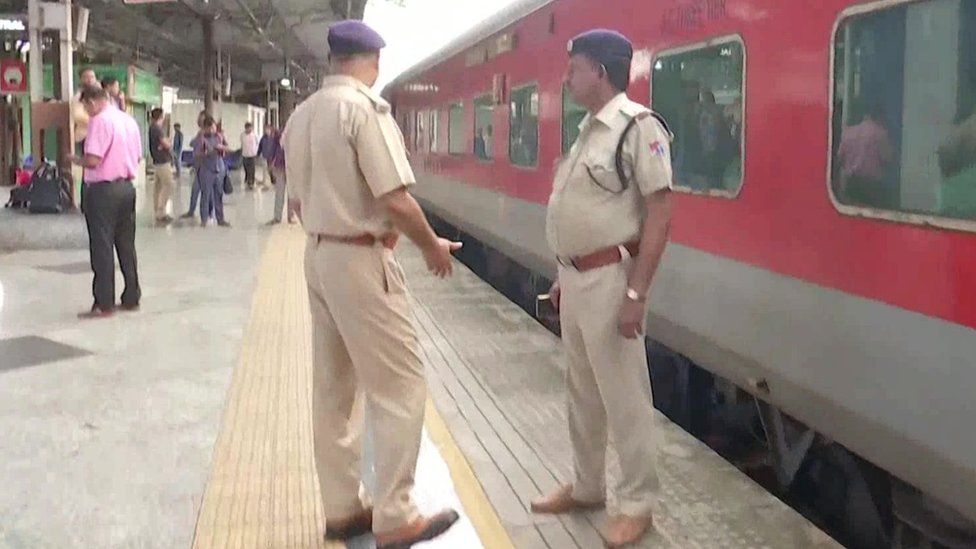 ANI
ANIA constable with India’s Railway Protection Force (RPF) has been arrested after he shot dead four people on a train near the city of Mumbai.
Police said the accused, Chetan Kumar, killed a senior RPF official and three passengers.
They said they are investigating his motive and trying to identify the dead passengers.
RPF personnel are tasked with the protection of railway passengers and property in India.
The shooting took place around 5:30 local time (3:00 GMT) on a train travelling from Jaipur in the western state of Rajasthan towards Mumbai city in Maharashtra.
Mr Kumar first opened fire on Tikaram Meena, an assistant sub-inspector with the RPF, before shooting three other passengers, according to an RPF statement.
The incident occurred just after the train passed the town of Palghar, around 96km (60 miles) from the state capital, Mumbai. Mr Kumar then pulled the in-house alarm chain – used to stop trains in case of emergencies – and tried to escape, according to a statement from the Western Railways. He was arrested in the outskirts of Mumbai.
A top official of the Western Railways told reporters that there didn’t seem to be any argument between Mr Kumar and others before the shooting.
“It seems like he was not well,” he said.
BBC News India is now on YouTube. Click here to subscribe and watch our documentaries, explainers and features.

Read more India stories from the BBC:

Related Topics
Fewer job seekers, employees faced discrimination in 2022: MOM
SINGAPORE: Fewer Singapore residents in the labour force faced discrimination at work and during their job searches last year, the Ministry of Manpower (MOM) said on Monday (Jul 31). More job seekers and employees did, however, experience discrimination based on mental health, according to MOM’s Fair Employment Practices Report forContinue Reading
Fewer jobseekers, employees faced discrimination in 2022: MOM
SINGAPORE: Fewer Singapore residents in the labour force faced discrimination at work and during their job searches last year, the Ministry of Manpower (MOM) said on Monday (Jul 31). More jobseekers and employees did, however, experience discrimination based on mental health, according to MOM’s Fair Employment Practices Report for 2022.Continue Reading
Commentary: Stony silence over Qin Gang saga does Chinaâs reputation no favours

On Jul 17, when asked to confirm whether Qin was still the foreign minister, Mao told the reporter to check the ministry’s website which listed Qin as the foreign minister and said she did not have any new information. So, a foreign ministry spokesperson could not directly confirm the foreign minister was still the foreign minister, and a reporter had to check the ministry’s website to confirm he was?
Mao has my sympathy, though. She knew the Qin-related questions would pop up every day she walked into the briefing room, but apparently, she was not authorised to say anything on that matter, not even to confirm that Qin was still foreign minister even though on paper he was.
Also, Mao’s exchanges with foreign reporters over Qin were all excluded from the readouts in the ministry’s website, keeping up the charade that “China’s diplomatic activities are moving forward normally”.
OLD HABITS DIE HARD
The shoe finally dropped on Tuesday (Jul 25) when the National People’s Congress Standing Committee replaced Qin with Wang Yi, his predecessor. At the briefing next day, Mao continued her stonewalling strategy by referring reporters to Xinhua reports as to why her former boss was removed – but Xinhua reports did not give any reason.
Meanwhile, the ministry was busy scrubbing Qin’s name and speeches from the official website, as if his seven-month tenure had not happened at all. One section which listed China’s foreign ministers since the People’s Republic was founded in 1949 no longer includes Qin. He was only listed as China’s ambassador to the United States from 2021 to 2023.
On Friday, the ministry quietly began to reinstate references to Qin which were erased on Tuesday, apparently because of intense media scrutiny. But the damage was done.
Old habits die hard. The ministry’s actions remind me of the antics popular in the heyday of Mao Zedong after leaders were purged. Such moves are counterproductive and ridiculous.
The fourth branch of government

Dissatisfaction with government. It is general and universal; systems discredited are socialist and capitalist, examples lie on both sides of the Pacific, the attitudes are on display among citizens as well as leaders. A process so widespread must find its cause in some common factor, some feature of government that is shared universally, today, and yesterday, in places antique and modern.
Can such a common failing exist, despite the thousands of years during which reformers, kings, despots, autocrats, aristos and founding fathers have been fine-tuning the subtle features of their wide range of designs for civic organization?
Yes, if we are willing to consider important reforms, on both sides of the Pacific, to the “fourth branch” of government.
The problem lies in the core feature shared by every variation of government. What is this universally shared component?
It is the fourth branch of government: bureaucracy, ministership, the Crown’s cabinet, the secretariat, the minions, the clerks, the pencil pushers – many names, it is one function that by its nature, that cannot be performed, day after day, place after place, at the level of competence, by the degree of honesty, at the rate of consistency, over the long run required of it.
To be precise, it seems to be an empirical, historical, generational fact that (for example) during an era when genius-level founding fathers gather so that they may design the intricacies of the first three branches of government, that a parallel group of super-ministers pops up, but only then, at times of great tension, crisis, to take on the task of grand form, reform and reorganization.
Once formulaic bureaucracy falls into ordinary hands, commonplace hands; once clerks become corrupt or at least careless; after office politics and self-promotion take over from public-spiritedness and the eye and pen-hand of the historians move on to other targets (as always is the empirical case), public dissatisfaction with the operations of government becomes inevitable.
Clerks or minions or some other sort of micro-level real human actors are always needed to transform the generalities announced, for example, by a lawmaker into an actual draft bill, putting into blackletter legal words the otherwise vague and imprecise intention expressed in the speeches made in the legislative chamber.
A variegated collection of other sorts of clerks are the sheriffs who enforce and the data-gathering spies who observe events, making sure rules are followed, along with the scribes who commit all to the record books.
It is an empirical fact that despite the real-world power and influence in the hands of these members of the fourth branch of government that, even in times and places such as the events in the American city of Philadelphia between 1787 and 1779, where power as distributed among the three classic branches of government was sliced and diced with great care and close, intense debate (the intellectual roots of which stretched back to ancient times), bureaucrats were, by means of simple neglect of the details of their employment and direction, allowed lifetime tenure, unchecked authority; great trust was placed in their characters and loose rules laid out to guide their discretion.
In other nations, where constitutions were allowed to grow in the manner of common law, custom, tradition, sometimes revolution and ideology, the clerks and “plumbers” who made the practical decisions that make up the real stuff of governance, grew like weeds, nearly wild in the garden of everyday events.
Kings and kingmakers
In France, Louis XIII and XIV had Cardinal Richelieu (1585-1642), succeeded by his clerk Cardinal Mazarin (1602-1661); the latter put an end to the spirit of war that threatened to disrupt the peace among the Catholic powers of the European continent.
Cardinal Wolsey (1473-1530) on the other side of the English Channel by means of his magnificent inability to manipulate the pope, Henry VIII could set the stage for British Protestantism. But once each of these “men of God” was called back to the great episcopy in the sky, much lesser men took responsibility, with ordinary mediocracy marking their efforts at imitation of their ancestors. In France it was terror; in England, Oliver Cromwell.
When leadership and management merge, mere dissatisfaction is not the problem: Gigantic processes are set in motion.
Josef Stalin was from 1922 until his death the general secretary of the Central Committee of the Soviet Communist Party. He began his career as a clerk, assigned to his job by the undisputed leader of the revolutionary government; but once Lenin’s mortal illnesses took over, Stalin’s power transmuted from clerkship all the way to despotism by rapid steps.
Like a caterpillar who spends time in a chrysalis, becoming a mature moth, Stalin evolved from master clerk to master of all.
George Washington’s presidency was, in part, a creation of his main man, Alexander Hamilton. Hamilton’s papers on banking, his wisdom shown in nationalizing state debts, the realization he communicated to his leader that without a tariff-protected domestic economic culture based on manufacturing, the infant United States of America might just as well have scrambled back to colonial status as drawer of water and hewer of wood.
Artilleryman Hamilton brought the onetime plain-spoken General Washington to so sophisticated a political maturity that he was able to walk away from treaty obligations to France because he was shown that national interest trumps middle-class morality.
Hamilton, the first US secretary of the Treasury, opposed by James Madison, even today ranked as the (clerk) who was the Father of the Constitution, fought over whether as president, Washington had the authority to declare the US was neutral in the ongoing (1793) war between France and England, despite a treaty suggesting that the US was bound to support France.
(This high-level propaganda tussle between two of the best bureaucrats ever to face off against each other went on in essence to persuade Washington, but the back and forth documents spoke to the entire nation as well, in what is known as the Pacificus-Helvidius Debates.)
These quasi-ministerial advisers to their political masters were indeed intellectual giants, but only a few years later (1812), advisers had reverted to primitive saber-rattlers called “war hawks” who led America into a war that could have sent the new nation into a state of reconquered subjection.
Whereas Hamilton’s and Madison’s writings kept America out of war, John C Calhoun and Henry Clay (they were congressmen, technically not bureaucrats, but they whipped up public opinion so egregiously and as de facto ministers) browbeat president James Madison so artfully that he signed a declaration of war against superpower England. The result was the burning of the White House by rampaging British troops at the low point of the War of 1812.
The Chinese experience
The Chinese imperial civil-service system lasted more than 2,000 years; it featured a many-layered hierarchical structure of competitive exams, beginning at provincial level and reaching up to the Palace exams, producing an elite phalanx of selectees, who were subject to continuing exams and other testing routines that featured surprise tests.
Personnel were “farmed out” to provincial and other lesser postings before they graduated to serve the emperor. Some historians say the entire tradition of Empire relied for its longevity on the degree of expertise developed among Chinese bureaucracy. If there was a fault in the system, it was that it produced a class of ministers too remote from the lives of ordinary citizens to attract either criticism or support.
Certainly, the sense of revolutionary resistance that was a feature of Western civil-service systems did not feature prominently in the historical records of the accomplishments of this way of life, which included widespread literacy, a semi-mythical credit for the invention of paper, and a naval force that came within a single counter-directive of discovering the North American continent.
For the purposes of this article, I say the Chinese civil service was a “fourth branch” of government, and it produced stability rather than the reverse. The reason for the contrast in effect was the elaborate “constitutional” level of thoughtful design that was in evidence in its structure, which stands in contrast to typical Western systems, that featured nepotism, aristocratic membership requirements and (by comparison) near random processes by which they were maintained.
And so, in the history of nations, bureaucrats must have been the ones who carved into a black, finger-shaped solid stone stele the Code of Hammurabi, yet their names were known to history only rarely.
Once the times “revert to the mean,” the practical operation of civil organization and process, from the interpretation of law codes to the day-to-day reality of civil society was managed by political flunkeys notable for mediocracy. That is, once “normal times” are re-established, so both politicians and their servants become degenerate.
What may be said about the cross-Pacific contrast in “fourth branch” design?
A merger between the two blueprints cries out for adoption. In the West, no more lifetime tenure, no more political tests for appointees, civil-service exams that are highly selective, retesting on a regular, as well as on a surprise, basis, a thin layer at the top where loyalty to the day’s party-in-power is explicit, but no such loyalty tests “downstream,” a degree on unanimity, but combined with integrity and a spirit of duty-first.
In modern China, a willingness to remember and adopt the rectitude of the Imperial system, especially with respect to probity rather than ideological tests. A regularization of tests to eliminate (insofar as reasonable) corruption, it being replaced with a sense of patriotic duty and long-term loyalty to some kind of non-partisan single-mindedness to constitutional politics rather than party loyalty.
In the past, a sharing of power at the top was stabilizing. As in the past, doors should remain open so that ordinary people with extraordinary endowments of skill, honesty, dutifulness and goal-associated persistence are made especially welcome.
On both sides of the Pacific such reforms are lofty in ambition. But that fourth branch of government, if better designed, would yield great dividends in both places.
Tom Velk is a libertarian-leaning American economist who writes and lives in Montreal, Canada. He has served as visiting professor at the Board of Governors of the US Federal Reserve system, at the US Congress and as the chairman of the North American Studies program at McGill University and a professor in that university’s Economics Department.
Woman brutally slain and mutilated
PUBLISHED : 31 Jul 2023 at 13:18

SAMUT PRAKAN: A 23-year-old man has been arrested after a woman neighbour was beaten to death by a man wielding two hammers and then sexually mutilated with a knife.
Police detained Khajondet Jampathong on Sunday while he was seated in front of Charoenchai Condo 2 building on Soi Sri Boonruang 2 Road in tambon Thepharak of Muang district.
A 59-year-old woman who lived in a neighbourig flat, Jitra Chantharunai, was dead at the scene. She had been savagely attacked about 11.30am.
Police pieced the story together from a surveillance camera recording that showed part of the attack and witness accounts. They said Jitra was a municipal street cleaner. On Sunday she had been at a drinking party with other neighbours at a local grocery store before walking to Mr Khajondet’s room.
The two had talked and then argued for a while, and then she fell to the ground. A man approached her and hit her on the head repeatedly with two hammers. He then dragged her to an empty parking space, took off her trousers and used a knife to cut out her genitals, which he laid beside the body.
The killer then he stood up and stared at the body. Police reached the scene shortly after. At the scene, police found a 25-centimetre-long kitchen knife, a claw hammer with a broken handle and a sledge hammer.
Village headman Chamlong Phumphan said the suspect, Mr Khajondet, had finished his air force service as a private a month ago. The man had returned and stayed with his father in the same building. He often talked to himself.
Mr Chamlong also said the slain woman was drunk when the two argued.
Her son Damrongsak Sakaew was in shock. He said his mother had never had any dispute with her killer.
Court of Three Judges acquits MP Christopher de Souza of misconduct as a lawyer
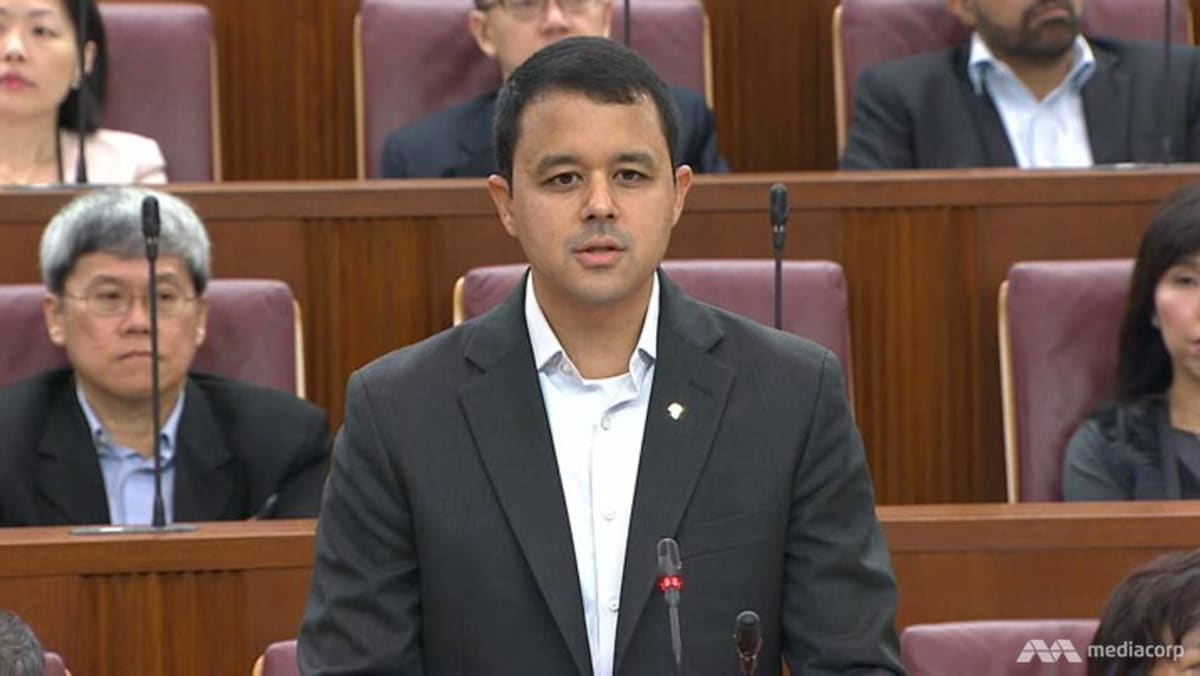
THE CASE
The case stems from when Mr de Souza was acting in his capacity as a partner of law firm Lee & Lee for Amber Compounding Pharmacy and Amber Laboratories in a High Court suit.
Amber was initially represented by law firm Dodwell & Co and was suing a former employee and her company for allegedly stealing trade secrets.
The Dodwell & Co lawyers were granted search orders to obtain documents and information from the defendants, with the express undertaking that Amber was not to use any of the information or documents obtained except for the court proceedings in the High Court suit.
A total of 116,298 documents were seized in April 2018 under the search orders, and Amber breached its undertakings by making three reports in 2018 to the Ministry of Manpower, the Corrupt Practices Investigation Bureau and the Singapore Police Force, disclosing 10 documents.
This happened before Mr de Souza and Lee & Lee took over the case. They were approached in November 2018 to act for Amber over the reports made to the authorities.
Internal correspondence at Lee & Lee shows that Mr de Souza and his colleagues knew about the breach and had advised Amber to take immediate steps to remedy it.
However, the disciplinary tribunal found that Mr de Souza did not ensure that his client did not make full disclosure of the breach in a filing of an affidavit.
ARGUMENTS BEFORE THE COURT OF 3 JUDGES
The Court of Three Judges on Monday morning grilled both LawSoc’s Mr Assomull as well as Mr de Souza’s lead counsel, Senior Counsel Tan Chee Meng.
They questioned Mr Assomull on the framing of the one charge Mr de Souza had been found guilty of, as well as on what LawSoc’s precise case was as to Mr de Souza’s intention to suppress evidence.
As for Mr Tan, the court asked him about how the affidavit was drafted. Mr Tan’s case was that the affidavit did disclose the wrongdoing, and that it simply could have been drafted in a clearer manner.
Justice Woo told him candidly: “It’s not as crystal clear as you’re making it out to be … otherwise, we don’t have to be here today.”
Mr Tan said he agreed that the affidavit could have been better drafted, but he asked whether the lack of clarity exhibited an intention to suppress evidence.
Mr Assomull had argued that internal correspondence at Lee & Lee showed that Mr de Souza was aware of the breach, as well as the importance of disclosing it.
To not do so clearly in the affidavit can only mean one thing, that he intended to suppress it, said Mr Assomull.
If the client had refused to agree to certain facts or wordings that a lawyer felt must be included in an affidavit, then the lawyer had to discharge themselves, said Mr Assomull.
“That is the paramount duty that every lawyer owes to the court,” he said. “First the court – then the client. Not the client, then the court.”
He charged that the team of lawyers knew that if the line revealing the breach had been put in, their application “was doomed to fail”.
Mr Tan said that Mr de Souza did discharge himself, in July 2019, after realising that despite his advice, the client had again used the seized documents.
“The immediate steps taken by Mr de Souza in consultation with Mr Tan Tee Jim was to discharge. He could not stand the nonsense of the client in breaching the undertaking,” said Mr Tan.
“That cannot be the conduct of an officer of the court who wanted to suppress evidence,” he added.
The PAP had previously said in response to CNA’s queries that it would determine the course of action necessary after the Court of Three Judges gives its verdict.
Law Society asks for four-year suspension for MP Christopher de Souza over misconduct as a lawyer

THE CASE
The case stems from when Mr de Souza was acting in his capacity as a partner of law firm Lee & Lee for Amber Compounding Pharmacy and Amber Laboratories in a High Court suit.
Amber was initially represented by law firm Dodwell & Co and was suing a former employee and her company for allegedly stealing trade secrets.
The Dodwell & Co lawyers were granted search orders to obtain documents and information from the defendants, with the express undertaking that Amber was not to use any of the information or documents obtained except for the court proceedings in the High Court suit.
A total of 116,298 documents were seized in April 2018 under the search orders, and Amber breached its undertakings by making three reports in 2018 to the Ministry of Manpower, the Corrupt Practices Investigation Bureau and the Singapore Police Force, disclosing 10 documents.
This happened before Mr de Souza and Lee & Lee took over the case. They were approached in November 2018 to act for Amber over the reports made to the authorities.
Internal correspondence at Lee & Lee shows that Mr de Souza and his colleagues knew about the breach and had advised Amber to take immediate steps to remedy it.
However, the disciplinary tribunal found that Mr de Souza did not ensure that his client did not make full disclosure of the breach in a filing of an affidavit.
ARGUMENTS BEFORE THE COURT OF 3 JUDGES
The Court of Three Judges on Monday morning grilled both LawSoc’s Mr Assomull as well as Mr de Souza’s lead counsel, Senior Counsel Tan Chee Meng.
They questioned Mr Assomull on the framing of the one charge Mr de Souza had been found guilty of, as well as on what LawSoc’s precise case was as to Mr de Souza’s intention to suppress evidence.
As for Mr Tan, the court asked him about how the affidavit was drafted. Mr Tan’s case was that the affidavit did disclose the wrongdoing, and that it simply could have been drafted in a clearer manner.
Justice Woo told him candidly: “It’s not as crystal clear as you’re making it out to be … otherwise, we don’t have to be here today.”
Mr Tan said he agreed that the affidavit could have been better drafted, but he asked whether the lack of clarity exhibited an intention to suppress evidence.
Mr Assomull had argued that internal correspondence at Lee & Lee showed that Mr de Souza was aware of the breach, as well as the importance of disclosing it.
To not do so clearly in the affidavit can only mean one thing, that he intended to suppress it, said Mr Assomull.
If the client had refused to agree to certain facts or wordings that a lawyer felt must be included in an affidavit, then the lawyer had to discharge themselves, said Mr Assomull.
“That is the paramount duty that every lawyer owes to the court,” he said. “First the court – then the client. Not the client, then the court.”
He charged that the team of lawyers knew that if the line revealing the breach had been put in, their application “was doomed to fail”.
Mr Tan said that Mr de Souza did discharge himself, in July 2019, after realising that despite his advice, the client had again used the seized documents.
“The immediate steps taken by Mr de Souza in consultation with Mr Tan Tee Jim was to discharge. He could not stand the nonsense of the client in breaching the undertaking,” said Mr Tan.
“That cannot be the conduct of an officer of the court who wanted to suppress evidence,” he added.
The PAP had previously said in response to CNA’s queries that it would determine the course of action necessary after the Court of Three Judges gives its verdict.


